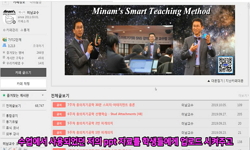Within the domain of artificial intelligence (AI) and its potential contributions to humanity, concurrent concerns and uncertainties about AI or AI-enabled robots are evident. This research identified a crucial gap, specifically the lack of comprehens...
http://chineseinput.net/에서 pinyin(병음)방식으로 중국어를 변환할 수 있습니다.
변환된 중국어를 복사하여 사용하시면 됩니다.
- 中文 을 입력하시려면 zhongwen을 입력하시고 space를누르시면됩니다.
- 北京 을 입력하시려면 beijing을 입력하시고 space를 누르시면 됩니다.
https://www.riss.kr/link?id=A108892561
- 저자
- 발행기관
- 학술지명
- 권호사항
-
발행연도
2023
-
작성언어
Korean
-
주제어
인공지능 ; 윤리지침 ; 교육프로그램 설계 ; 개발자 ; 연구자 ; 교수자 ; 학습자 ; I ; ethical guidelines ; educational program designers and developers ; researchers ; instructors ; learners
-
등재정보
KCI등재
-
자료형태
학술저널
- 발행기관 URL
-
수록면
1509-1564(56쪽)
- DOI식별코드
- 제공처
-
0
상세조회 -
0
다운로드
부가정보
다국어 초록 (Multilingual Abstract)
Within the domain of artificial intelligence (AI) and its potential contributions to humanity, concurrent concerns and uncertainties about AI or AI-enabled robots are evident. This research identified a crucial gap, specifically the lack of comprehensive exploration into ethical considerations and the absence of precise guidelines for AI application within educational contexts. The primary objective of this study is to bridge this void by devising ethical guidelines tailored for pivotal educational stakeholders. They include program designers and developers, researchers, instructors, and learners actively engaged in integrating AI for educational purposes. To accomplish this objective, ethical considerations for AI application in education were derived through an analysis of prior research on established AI ethics, organizing specific definitions. An initial draft of ethical guidelines, customized for relevant stakeholders in the educational sphere, was developed. The validation involved a two-step Delphi survey encompassing four distinct groups. This iterative survey effectively eliminated redundancies in ethical considerations and refined them to align with the perspectives of pertinent practitioners, interpreting specific ethical considerations. The study culminated in the identification of six overarching areas—transparency, justice and fairness, nonmaleficence, responsibility, freedom and autonomy, and coexistence—along with 28 components (e.g., transparency, fairness, safety, privacy, sustainability, solidarity, etc.) comprising the ethical guidelines for the educational use of AI. The proposed guidelines furnish a comprehensive framework for ethical practices in the integration of AI into educational settings.
동일학술지(권/호) 다른 논문
-
인공지능 튜터링 시스템 기반초등학교 수학 수업 설계원리 및 지침 개발
- 한국교육공학회
- 최서연
- 2023
- KCI등재
-
ChatGPT를 활용한 수학 플립러닝 사례연구: 학습자의 참여를 중심으로
- 한국교육공학회
- 윤정은
- 2023
- KCI등재
-
ChatGPT와의 협업을 통한포스트휴머니즘 관점의 미래교육 시나리오 도출
- 한국교육공학회
- 임상훈
- 2023
- KCI등재
-
국내외 협력학습분석학(Collaboarative Learning Analytics) 연구 동향에 대한 체계적 문헌고찰
- 한국교육공학회
- 임규연
- 2023
- KCI등재
분석정보
연관 공개강의(KOCW)
-

교수자의 발표문서를 이용하여 학습자들이 30분 영상으로 발표하는 미남교수의 학습자 참여형 교수법
신한대학교 신종우 -

교수자의 선행학습 영상을 학습한 다음 교수자의 영상발표자료를 토대로 학습자가 30분 스피치 영상으로 녹화하여 업로드 하는 미남교수의 거꾸로 교수법
신한대학교 신종우 -

교수자의 발표 자료를 토대로 학습자들이 영상으로 발표하는 학습법
신한대학교 신종우 -

수업시간에 학습자들이 교수자에게 제일 많이 듣는 이야기 Top 10 !
신한대학교 신종우 -

다중언어 배경의 학습자를 위한 창의적 국어과 지도
경인교육대학교 강남욱, 심상민, 이지영





 KCI
KCI

